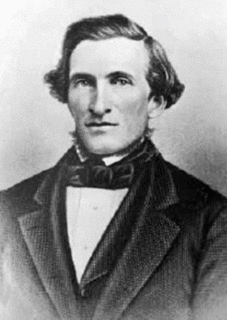A Quote by Friedrich August von Hayek
Unlike the rationalism of the French Revolution, true liberalism has no quarrel with religion, and I can only deplore the militant and essentially illiberal antireligionism which animated so much of nineteenth-century Continental liberalism. ... What distinguishes the liberal from the conservative here is that, however profound his own spiritual beliefs, he will never regard himself as entitled to impose them on others and that for him the spiritual and the temporal are different sphere which ought not to be confused.
Quote Topics
Animated
Beliefs
Century
Confused
Conservative
Continental
Different
Distinguishes
Entitled
Essentially
French
French Revolution
Him
Himself
His
However
Impose
Liberal
Liberalism
Militant
Much
Never
Only
Others
Ought
Own
Profound
Quarrel
Rationalism
Regard
Religion
Revolution
Sphere
Spiritual
Spiritual Beliefs
Temporal
Them
True
Unlike
Which
Will
Related Quotes
Given that the nineteenth century was the century of Socialism, of Liberalism, and of Democracy, it does not necessarily follow that the twentieth century must also be a century of Socialism, Liberalism and Democracy: political doctrines pass, but humanity remains, and it may rather be expected that this will be a century of authority ... a century of Fascism. For if the nineteenth century was a century of individualism it may be expected that this will be the century of collectivism and hence the century of the State.
There are two kinds of liberalism. A liberalism which is always, subterraneously authoritative and paternalistic, on the side of one's good conscience. And then there is a liberalism which is more ethical than political; one would have to find another name for this. Something like a profound suspension of judgment.
A man that advances in spiritual and in temporal matters at the same time, minding to keep the spiritual first, will not let the temporal lead him; he will not place his heart upon his farm, his horses, or any possession that he has. He will place his desires in heaven, and will anchor his hope in that eternal soil; and his temporal affairs will come up as he advances in the knowledge of God.
The issue of religious liberty is absolutely critical. America was founded on three different types of liberty: political liberty, economic liberty, and religious and civil liberty. It's remarkable that, one-by-one, these strands of liberty are coming under fierce attack from the Left. And that's particularly ironic because "liberal" derives from a word which means "liberty," the free man as opposed to the slave. This liberalism which we're saddled with today isn't a real liberalism at all, but a gangster style of politics masquerading as liberalism.
Fox News seems much more conservative than it is because no other television network over the past half-century has been anything but decidedly liberal. When the media norm is liberal, liberals equate liberalism with objectivity and deviations from it as bias, just as liberals preach tolerance toward all ideas - except conservative ones. Their self-delusion is surreal.
No true Latter-Day Saint, while physically or emotionally able will voluntarily shift the burden of his own or his family's well-being to someone else. So long as he can, under the inspiration of the Lord and with his own labors, he will supply himself and his family with the spiritual and temporal necessities of life.
My conception of the audience is of a public each member of which is carrying about with him what he thinks is an anxiety, or a hope, or a preoccupation which is his alone and isolates him from mankind and in this respect at least the function of a play is to reveal him to himself so that he may touch others by virtue of the revelation of his mutuality with them. If only for this reason I regard the theater as a serious business, one that makes or should make man more human, which is to say, less alone.
Every man is of importance to himself, and, therefore, in his own opinion, to others; and, supposing the world already acquainted with his pleasures and his pains, is perhaps the first to publish injuries or misfortunes which had never been known unless related by himself, and at which those that hear them will only laugh, for no man sympathises with the sorrows of vanity.
Socialism needs to pull down wealth; liberalism seeks to raise up poverty. Socialism would destroy private interests, Liberalism would preserve [them] ... by reconciling them with public right. Socialism would kill enterprise; Liberalism would rescue enterprise from the trammels of privilege and preference. Socialism assails the preeminence of the individual; Liberalism seeks ... to build up a minimum standard for the mass. Socialism exalts the rule; Liberalism exalts the man. Socialism attacks capitalism; Liberalism attacks monopoly.
The world of men has forgotten the joys of silence, the peace of solitude, which is necessary, to some extent, for the fullness of human living. Man cannot be happy for long unless he is in contact with the springs of spiritual life which are hidden in the depths of his own soul. If man is exiled constantly from his own home, locked out of his spiritual solitude, he ceases to be a true person.




































